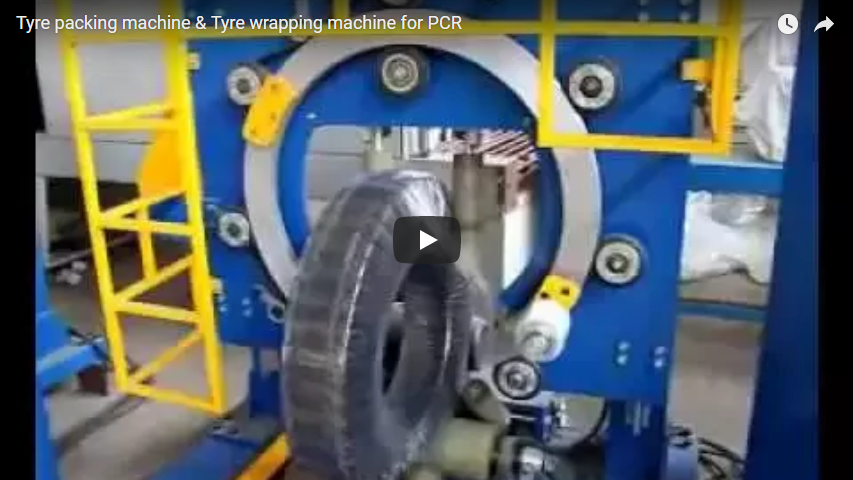Tyre packing machine & Tyre wrapping machine for PCR
Handling and packaging Passenger Car Radial (PCR) tyres presents unique challenges in manufacturing and distribution environments. Ensuring tyres reach their destination free from damage, dirt, and environmental effects, while also maintaining a professional appearance, is paramount. Manual wrapping methods often fall short, proving time-consuming, inconsistent, and labour-intensive. This is where automated tyre packing and wrapping machines provide a critical advantage, streamlining operations and enhancing product value.
Based on our experience working with tyre manufacturers and distributors, the transition to automated wrapping significantly impacts operational efficiency and product quality control. Let's delve into the specifics of these machines:
1. Robust Construction for Demanding Environments
The foundation of a reliable tyre wrapping machine is its sturdy frame, typically fabricated from heavy-gauge steel. This robust construction is essential for maintaining stability and precision during the dynamic wrapping process, ensuring longevity even in high-throughput industrial settings. The machine is designed to withstand the rigours of continuous operation, minimising downtime and maintenance requirements.
2. Advanced Orbital Wrapping Mechanism
At the heart of the machine lies a rotating ring, often featuring an opening design ("opening rotary ring"). This allows tyres, individually or in stacks, to be easily positioned within the wrapping zone. As the ring rotates, it dispenses the wrapping material (commonly LLDPE stretch film) in an orbital fashion around the tyre(s). The "eye cross wrapping" capability ensures comprehensive coverage across the tyre tread and sidewalls, effectively sealing the product. Precise tension control systems are crucial here, ensuring the film is applied securely without excessive constriction, optimising material usage and wrap integrity.
3. Operational Efficiency and User Control
Modern tyre wrapping machines are designed for ease of use and integration into existing production lines. Key operational features often include:
- Programmable Logic Controller (PLC): Allows for setting various wrapping parameters, such as ring speed, overlap percentage, and number of wrap layers.
- Human-Machine Interface (HMI): Typically a touchscreen display providing intuitive control, status monitoring, and diagnostic feedback. Operators usually find the graphical interface straightforward, reducing training time and potential errors.
- Automation Features: Depending on the model, features can include automatic film clamping, cutting, and wiping, further reducing manual intervention and cycle time.
- Variable Speed Control: Allows adjustment of the wrapping speed to match production flow and tyre characteristics.
4. Key Technical Specifications (Typical Range)
While specifications vary by model, typical parameters for PCR tyre wrappers include:
- Tyre Size Compatibility: Designed to handle common PCR tyre dimensions (specify typical OD, ID, and width ranges if known, e.g., OD 500-900mm, Width 150-350mm).
- Ring Rotation Speed: Adjustable, often in the range of 50-100 RPM.
- Wrapping Efficiency: Can range from 30 to 60+ tyres (or tyre stacks) per hour, depending on wrap parameters and automation level.
- Control System: PLC with HMI Touchscreen.
- Wrapping Material: LLDPE Stretch Film (specify typical width, e.g., 100-250mm, and thickness).
- Power Requirements: Standard industrial power supply (e.g., 380V/50Hz/3Ph or as per local standard).
5. Enhanced Tyre Protection During Transit and Storage
The primary function of wrapping is protection. A well-applied stretch wrap shields tyres from:
- Dust and Dirt: Keeps tyres clean for storage and final presentation.
- Moisture: Reduces the risk of water damage or degradation, especially during shipping or outdoor storage.
- UV Radiation: Some stretch films offer UV resistance, preventing premature rubber degradation.
- Scuffing and Abrasion: Protects sidewalls and treads from damage during handling and transport.
6. Improved Logistics and Handling Efficiency
Uniformly wrapped tyres or tyre stacks are significantly easier and safer to handle, stack, and inventory compared to loose tyres. This dimensional stability streamlines warehouse operations, improves space utilisation on trucks, and reduces the risk of handling-related injuries or product damage, ultimately minimising costly shipping claims.
7. Significant Cost Reduction Potential
Automating the tyre wrapping process delivers tangible cost savings through:
- Reduced Labour Costs: Frees up personnel previously assigned to manual wrapping for other value-added tasks.
- Optimised Material Consumption: Consistent tension control and programmable overlap minimise film wastage compared to manual application.
- Increased Throughput: Faster wrapping cycles boost overall productivity.
8. Professional Presentation and Branding
Beyond protection, the tightly wrapped finish provides a professional, uniform appearance that enhances brand perception. This consistent, high-quality packaging signals product care and meets the aesthetic expectations of customers and distributors, reinforcing the value proposition. Achieving this level of consistency manually is practically impossible.
In conclusion, the automated tyre packing and wrapping machine represents a strategic investment for any operation handling significant volumes of PCR tyres. It directly addresses the inefficiencies and inconsistencies of manual methods, delivering substantial improvements in protection, operational speed, cost-effectiveness, and overall product presentation. This technology is a cornerstone of modern, efficient tyre logistics.
For further details or specific application queries:
info@fhopepack.com
Learn more about specific machine capabilities:
https://www.fhopepack.com/Tyre-packing-machine/


